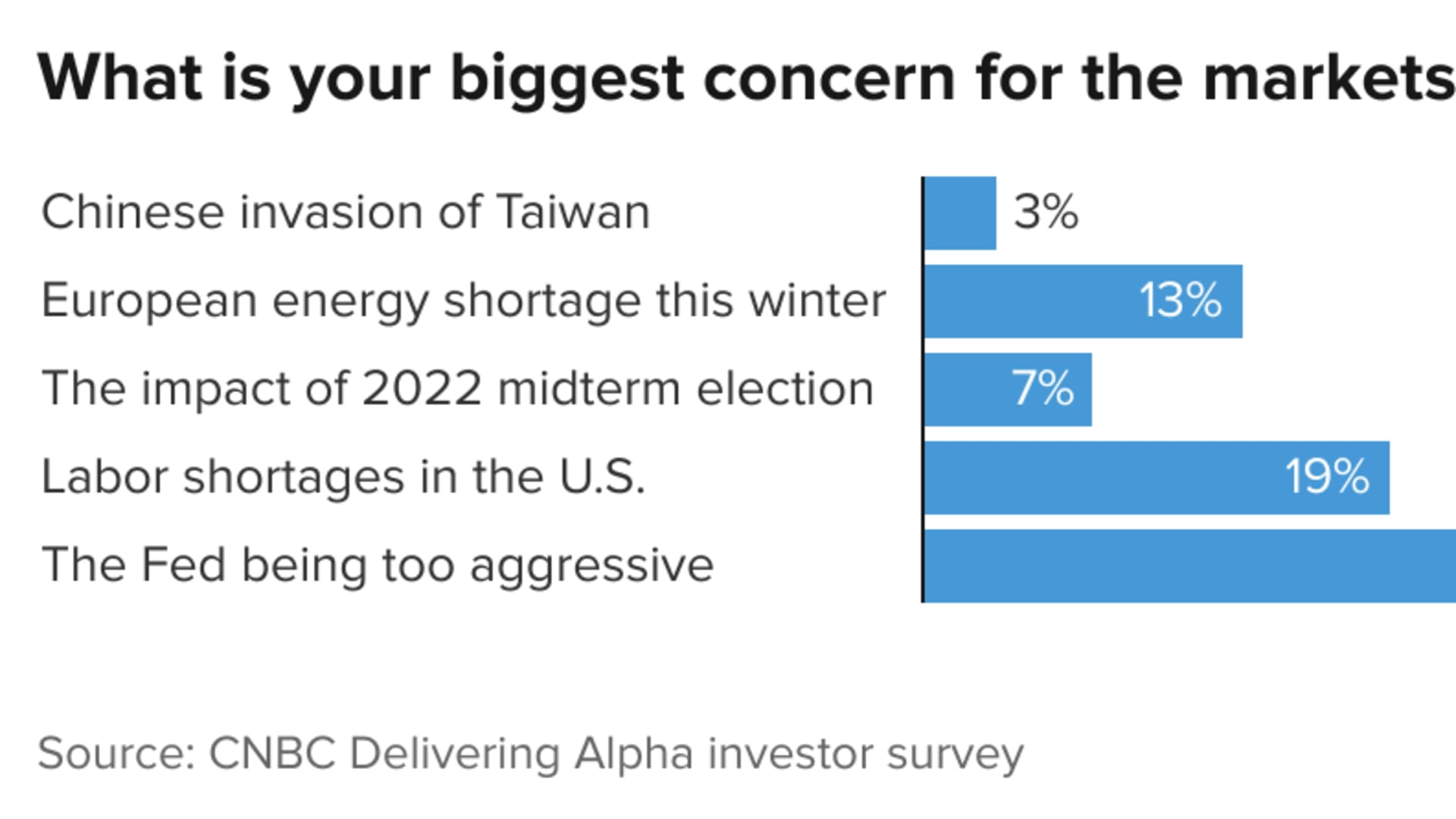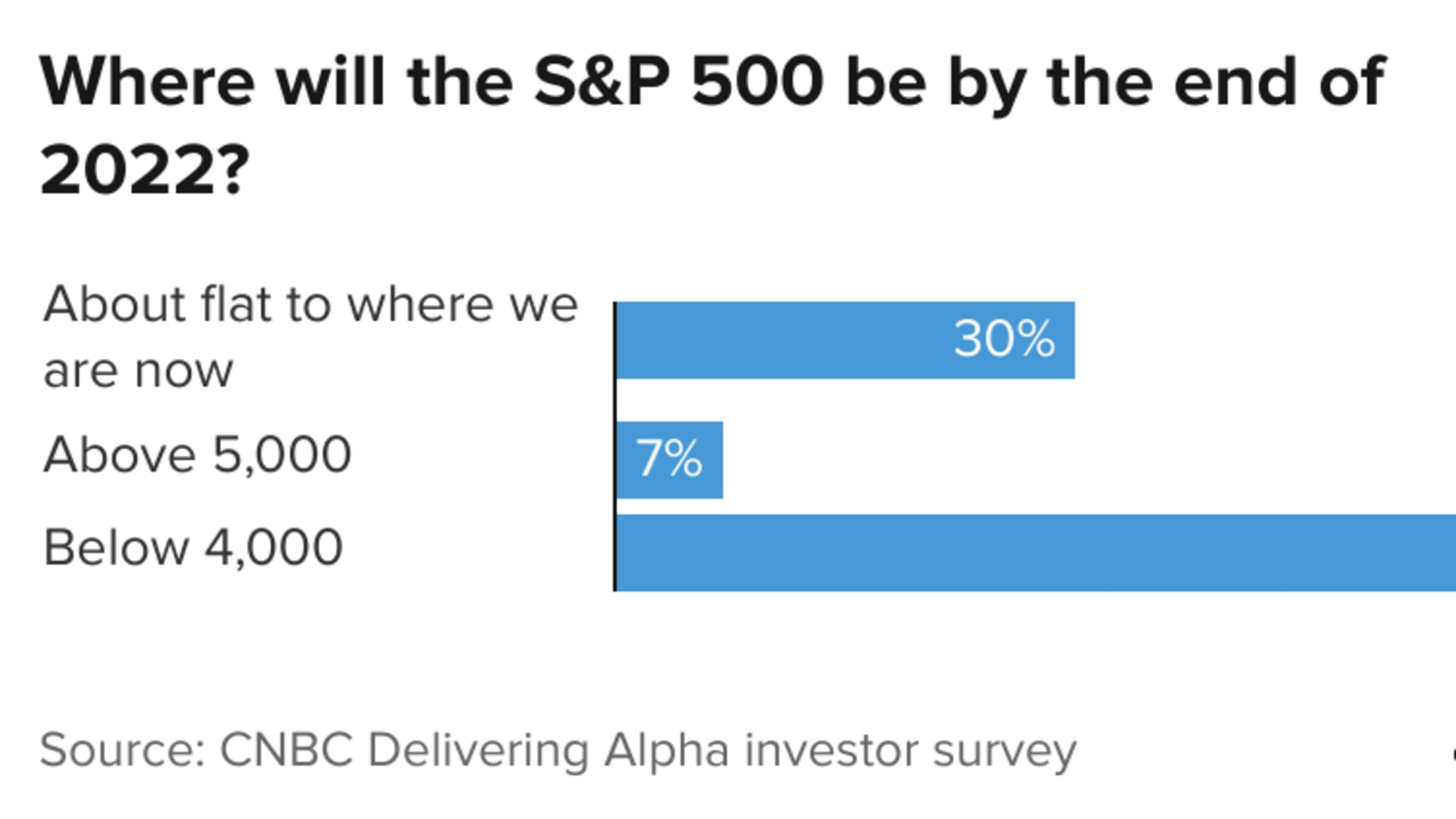
(Click here to subscribe to the new Delivering Alpha newsletter.)
The Federal Reserve's most aggressive pace of tightening since the 1980s is making the majority of Wall Street investors believe stocks will be underwater for longer, according to the new CNBC Delivering Alpha investor survey.
We polled about 400 chief investment officers, equity strategists, portfolio managers and CNBC contributors who manage money, asking where they stood on the markets for the rest of 2022 and beyond. The survey was conducted this week.
Fifty-eight percent of respondents said their biggest concern for the markets right now is the Fed being too aggressive. The central bank last week raised rates by three-quarters of a percentage point for a third straight time and pledged more hikes to beat inflation, triggering a big sell-off in risk assets.

"While this aggressive pace of hiking should bring inflation closer to the 2% target, it will also likely bring economic hardship," said Seema Shah, chief global strategist at Principal Global Investors. "The Fed's tolerance for economic pain doesn't bode well for risk assets. ... Get defensive, times are getting tougher."
More than 60% of the investors believe the S&P 500 will end the year below 4,000, which would translate into a 16% loss for the year. Still, the 4,000 level is about 8% higher than where the benchmark traded Tuesday.

Rising rates and volatility in currency markets caused the S&P 500 to drop 1% on Monday, taking out its June low. The Dow Jones Industrial Average slipped into a bear market, down about 20% from its Jan. 4 closing high.
Money Report
"The market reaction to early earnings releases suggests that slowing economic activity is nowhere near priced in," said Lauren Goodwin, economist and portfolio strategist at New York Life Investments. "Earning estimates are likely to continue their decline until we see a bottoming in leading economic indicators. We are not there yet, suggesting volatility ahead for risk assets."
While investors expect more wild moves in the markets, they still think the U.S. remains the best place for their money, the survey showed.






